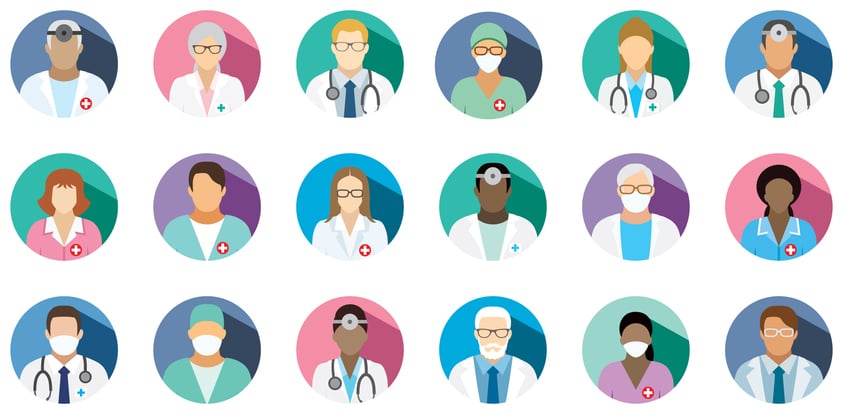Soft skills, otherwise known as interpersonal or “people” skills are imperative to have when working in healthcare. Many times, we tend to focus on successful grades, GPA, and test scores- not only in medicine but in education in general. However, soft skills are essential in complimenting hard skills, especially in healthcare - after all, you are working with people.
Although having these skills is not often emphasized in the medical curriculum, they are immensely important when helping care for patients everyday.
Keep reading to hear our thoughts on five soft skills that recruiters should seek when looking for providers to enhance patient care and contribute to a team.
1.) Clear Communication
A recently published Forbes article speaks on the importance of soft skills in medical professionals. It states, “It’s essential for a physician to communicate effectively with patients and family. This has to be done with plain English and with a personal touch.”
Many times, emotions can run high when dealing with certain diagnoses, and this can make clear and concise communication tricky. Healthcare professionals must take into consideration the bridge of understanding that must be met when explaining medical terms to patients who are not familiar with medical jargon.
In order to do this one must “explain the problem [at hand] in a way that someone could understand with a high school education. No medical jargon, no technical shortcuts, and to also speak with some compassion in light of the subject at hand.”
2.) Empathy
Certain diagnoses can cause emotional stressors such as fear of the unknown, grief, anxiety, and well as other tensions – like financial strain. Being empathetic and sensitive to patients’ emotions, reactions, and needs is vital in order to be a support in their diagnosis. Professionals are not only meant to diagnose, but to support patients the best that they can. Being able to put yourself in others' shoes is necessary to providing the best patient care.
3.) Situational Awareness/Emotional Intelligence
A multitude of situations happen within the healthcare profession, which is why it is so important to be able to stay on your toes at all times. The ability to evaluate a situation, the multiple personalities within it, and assess the best way to move forward that is beneficial to all parties, is something that will make a professional stick out from the rest.
4.) De-Personalization
You may think this is counter-intuitive since we just listed empathy as #2 on our list, however a balance is needed. To be a great professional in this industry, one must be able to make rational decisions from a logical perspective, especially when dealing with a highly emotional patient or case. Being able to do this is crucial in performing and caring for patients.
5.) Time Management
This may be self-explanatory, but with this career comes urgency. Patients need to be frequently checked on, provided information, and given medication timely and efficiently. Not to mention, there will sometimes be urgent situations where you will need to care for someone unexpectedly and immediately. Being able to compartmentalize your time, and do so where you are not overwhelmed is key.
6.) Sense of Humor
Last but not least, a sense of humor. In this profession, sometimes things get heavy and you will need to be able to see the good in situations. Making light of things when appropriate can be a major part of patient care, when it is easy for others to get overwhelmed. Being able to lighten the mood or brighten someone’s day can be amazing support for patients.
--
With all of that said, we know finding outstanding candidates fit for your needs can be a challenge. Want to find providers with these qualities? Let us help!











